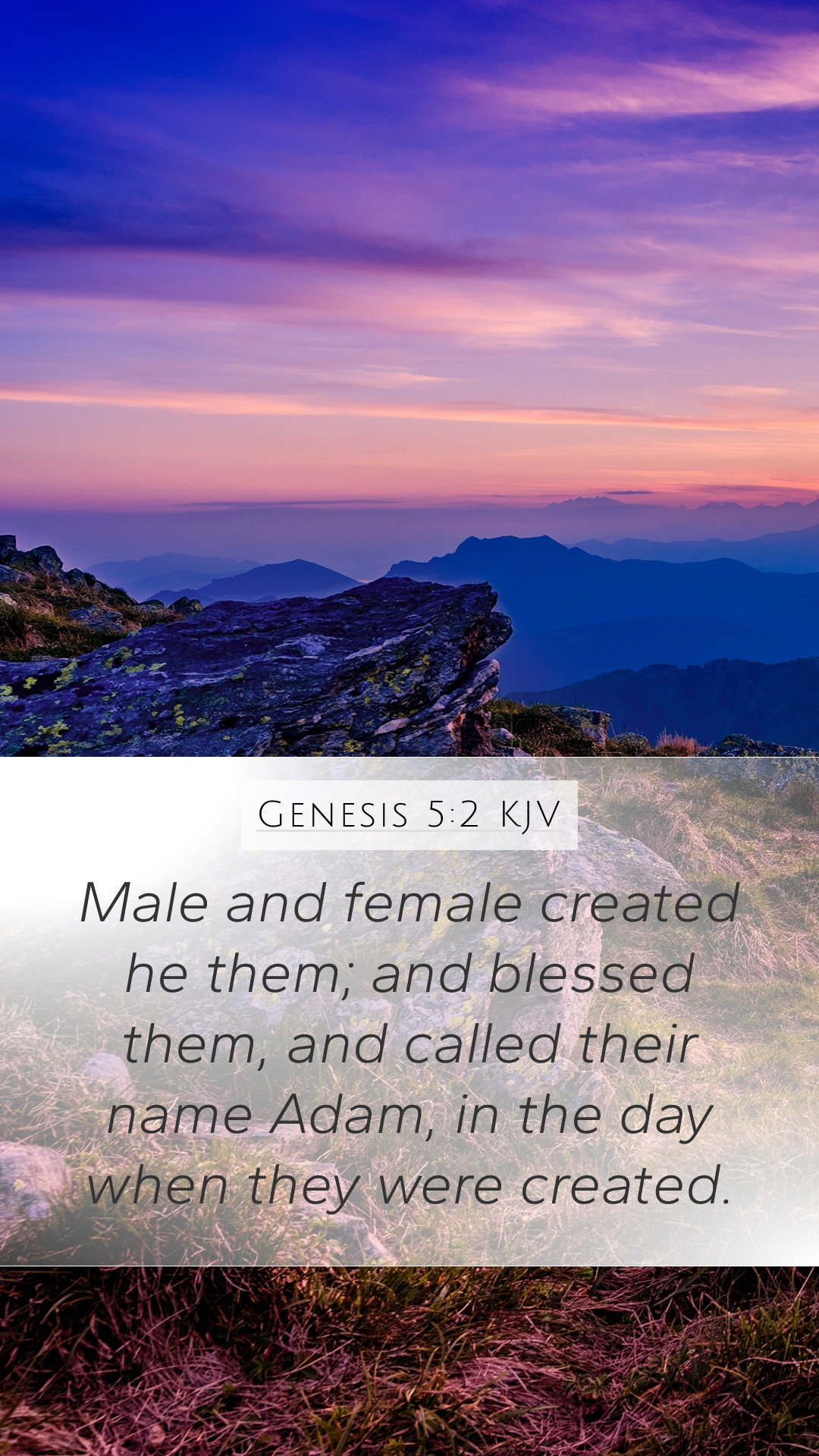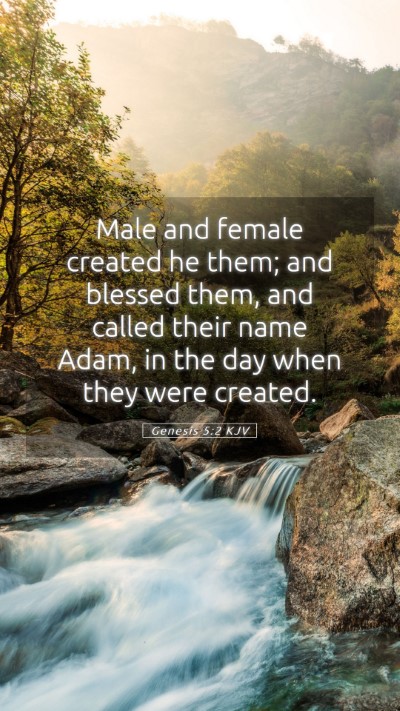Genesis 5:2 states, "Male and female created he them; and blessed them, and called their name Adam, in the day when they were created."
This verse highlights significant aspects of God's creation of humanity, focusing particularly on the unity and identity of mankind.
Bible Verse Meanings and Interpretations
The meaning of Genesis 5:2 can be understood through the lens of several public domain commentaries, providing insights into the divine intentions behind creation.
-
Matthew Henry's Commentary:
Henry emphasizes the importance of the creation account, noting that both male and female were created in God's image. This indicates equal value and dignity before God. He points out that the divine blessing conferred upon them reflects the sacred nature of marriage and family, suggesting that together they form the foundation of human society.
-
Albert Barnes' Notes:
Barnes interprets the use of the term "Adam" as a collective reference to humanity, not just the first man. He highlights the significance of naming them “Adam,” which underscores their shared identity and purpose. He adds that this collective identity is rooted in their creation by God, affirming their relational aspect and mutual responsibilities in the divine order.
-
Adam Clarke's Commentary:
Clarke notes the use of the term "blessed" as a divine approval of the male-female relationship. He stresses the importance of this blessing as part of God's original intent for humanity, signifying a divine mandate for multiplication and stewardship over creation. Clarke also brings attention to the implications of gender differences, emphasizing that both roles complement each other in fulfilling God's command.
Understanding Scripture: Theological and Practical Insights
Genesis 5:2 serves not only as a historical account but also as a theological foundation for understanding human relationships. The implications for family, societal structures, and spiritual teachings are profound:
- The Unity of Humanity: The verse teaches that all people are created in the image of God, which affirms the inherent dignity and worth of every individual. This doctrine shapes how believers engage with social justice and human rights.
- The Importance of Gender: By creating male and female, God establishes distinct but complementary roles, which has implications for understanding gender dynamics within both the church and society.
- Marriage and Family: This verse lays the groundwork for the institution of marriage, symbolizing not only companionship but also mutual support, growth, and the passing on of faith through generations.
- Creation Blessing: The blessing given by God upon creation exemplifies His intention for humanity to flourish and thrive on Earth, thus unpacking the purpose behind human existence.
Bible Study Insights: Application for Today
Understanding Genesis 5:2 offers critical insights for modern believers:
-
Reflecting on Identity: Christians are encouraged to reflect on their identity as creations in God's image, fostering self-worth and purpose.
-
Promoting Healthy Relationships: This verse informs contemporary discussions on marriage and families, emphasizing the need for respect, partnership, and shared goals.
-
Engaging in Creation Care: The divine command for stewardship can inspire Christians to engage actively in environmental and social justice initiatives.
Conclusion: Significance of Genesis 5:2
The significance of Genesis 5:2 extends beyond its literal reading into realms of identity, relationships, and theological reflection. It provides a foundation for understanding God's intentions for humanity and offers a framework for applying these principles in various aspects of life.
For additional context, consider the following related Bible verses:
- Genesis 1:26-27: The creation of humanity in God's image is further explored.
- Genesis 2:18: God’s creation of woman emphasizes the relational aspect of humanity.
- Matthew 19:4-6: Jesus references creation when discussing marriage, underscoring its original intent.


